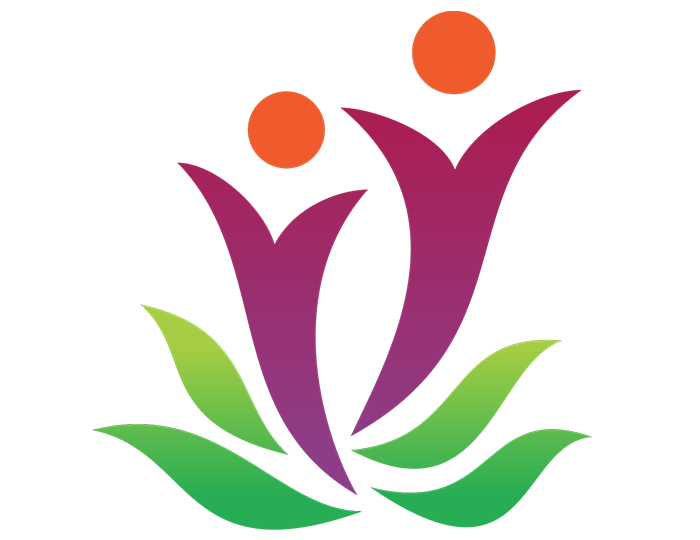We are in the worst time of this pandemic, and the holidays are upon us. It may be a tough time for some of us to feel grateful, and it can also be a time when we find gratitude for things we may have taken for granted before. In the Greater Good Magazine, Psychologist Nathan Greene talks about how gratitude can be complicated during times of struggle. “Gratitude can come from the experience of not having, too, in reflecting on what we did have in the past and what we hope to have in the future.” Gratitude can even come from loss, as a way of making meaning. We realize our vulnerability and the essentialness of connection.
Paying it Forward
Gratitude is a thankful appreciation for what an individual receives, whether tangible or intangible. It’s acknowledging the goodness in our lives. Expressing gratitude reminds us that we need each other; that where we are, and how we came to be here is not just through our own effort. Being reminded of that fact then creates a sense of empathy for those who may not have had equal access to opportunities. It can bring about a sense of wanting to “pay it forward”, or what Alfred Adler called Social Responsibility. Contributing to something outside of oneself, then builds a greater sense of purpose, satisfaction and positive emotions, and the cycle continues.
Greater Happiness
Two psychologists, Dr. Robert A. Emmons of the University of California, Davis, and Dr. Michael E. McCullough of the University of Miami, have done much of the research on gratitude. In their positive psychology research, gratitude is strongly and consistently associated with greater happiness. Their research shows that gratitude helps people feel more positive emotions, relish good experiences, improve their health, deal with adversity, and build strong relationships.
Look for what is right and good
The holidays are an opportunity for us to focus on those around us whom we appreciate. What if we could incorporate gratitude into our daily lives? David DeSteno, in his new book, Emotional Success, The Power of Gratitude, Compassion and Pride, tells us how we can enlist our emotions to be better people. Simply focusing on what we have (not what we don’t have) creates positive emotions. These emotions are constructive and powerful. Martin Seligman, the author of Learned Optimism, believes that positive emotions have evolved to motivate and guide us to win-win situations. In his book, Authentic Happiness, Seligman states, “positive emotions are part of a sensory system that alerts to us the presence of a potential win-win. They also set up an action repertoire and a mindset that broadens and builds abiding intellectual and social resources. Positive emotions, in short, build the cathedrals of our lives.”
Build a Gratitude Practice
So how can we build a gratitude practice that has so many benefits? Here are a few simple ideas. Pick one that you can start today:
- Keep a gratitude journal. Choose a quiet time of the day when you have some time to reflect. Write about something you like working on, or are getting better at doing. Write about people in your life, nature, opportunities, and simple pleasures. Do this at least once a week, or more if it fits into your lifestyle. Many people say that writing first thing in the morning starts their day with a more positive mindset.
- Express gratitude to another. This can be by phone, email, handwritten letter, or face-to-face. It can be someone in particular that you owe a debt of gratitude. It doesn’t matter how long ago in your history. Think about how much you would appreciate hearing from an old friend, relative, colleague, or student about how much they have meant to you. It could be to someone you don’t know personally. I’m grateful for the postal carriers, garbage collectors, healthcare workers who put their lives on the line, and researchers working on treatment for Covid-19 and its vaccine around the world. Most importantly, express gratitude to those that you live with. These are often the people whom we take for granted, and maybe assume that we don’t notice their contribution.
- Quiet contemplation. This can be through prayer, meditation, or just reflection. Think about one thing each day that you normally take for granted: the fresh air outside, the warm heat in your building, the hot coffee you have in the morning. Or, contemplate each of your objects of gratitude and how they have enriched your life.
- Mindfulness. Simply being present to what is right in front of us, and savoring the moment. We can work on reminding ourselves that each day is a gift and an opportunity to do something new, or resume a comforting ritual.
Be the Change You Long to See
In therapy, we talk about how as individuals and as partners in couple relationships, we can get stuck in negative patterns of behavior. Changing one aspect of your life can change the entire structure for the better. A simple act of kindness can jump-start a cascade of positive consequences. It can also impact your self-perception, so you begin to see yourself as a more compassionate person. Offering gratitude to another also leads to reciprocation, even though it’s not done with that expectation. It’s about building your own positive emotions.
Learn more about adding Gratitude to you life
Learn the practice of appreciation dialogues in a Getting the Love You Want Workshop-now virtual. Couples relationship workshops are offered monthly at the Imago Center. Learn more here. Register today for the 2 part Dec5/6, 12/13 workshop with Caroline Bernhardt-Lanier and Jason Bernhardt-Lanier

